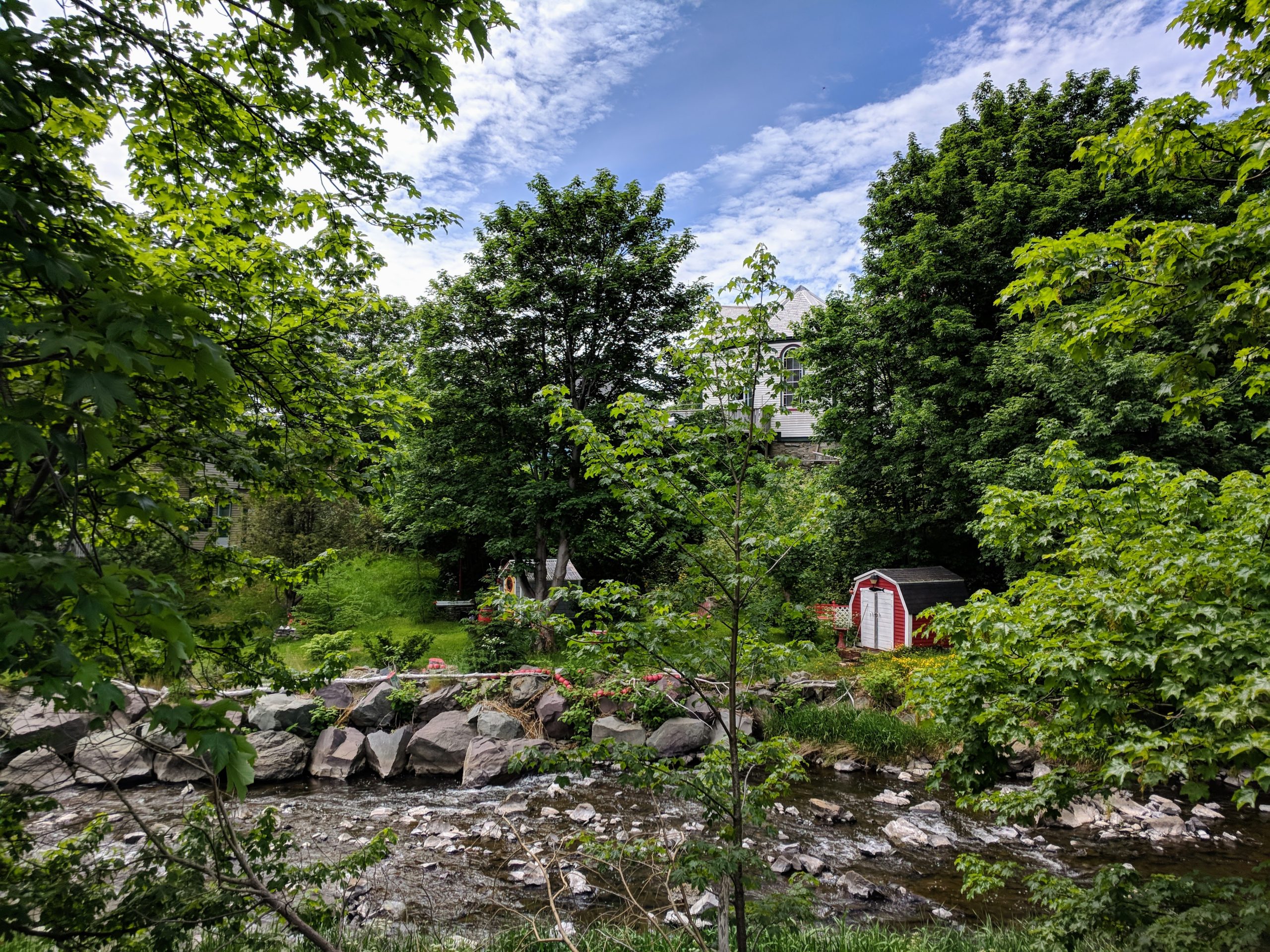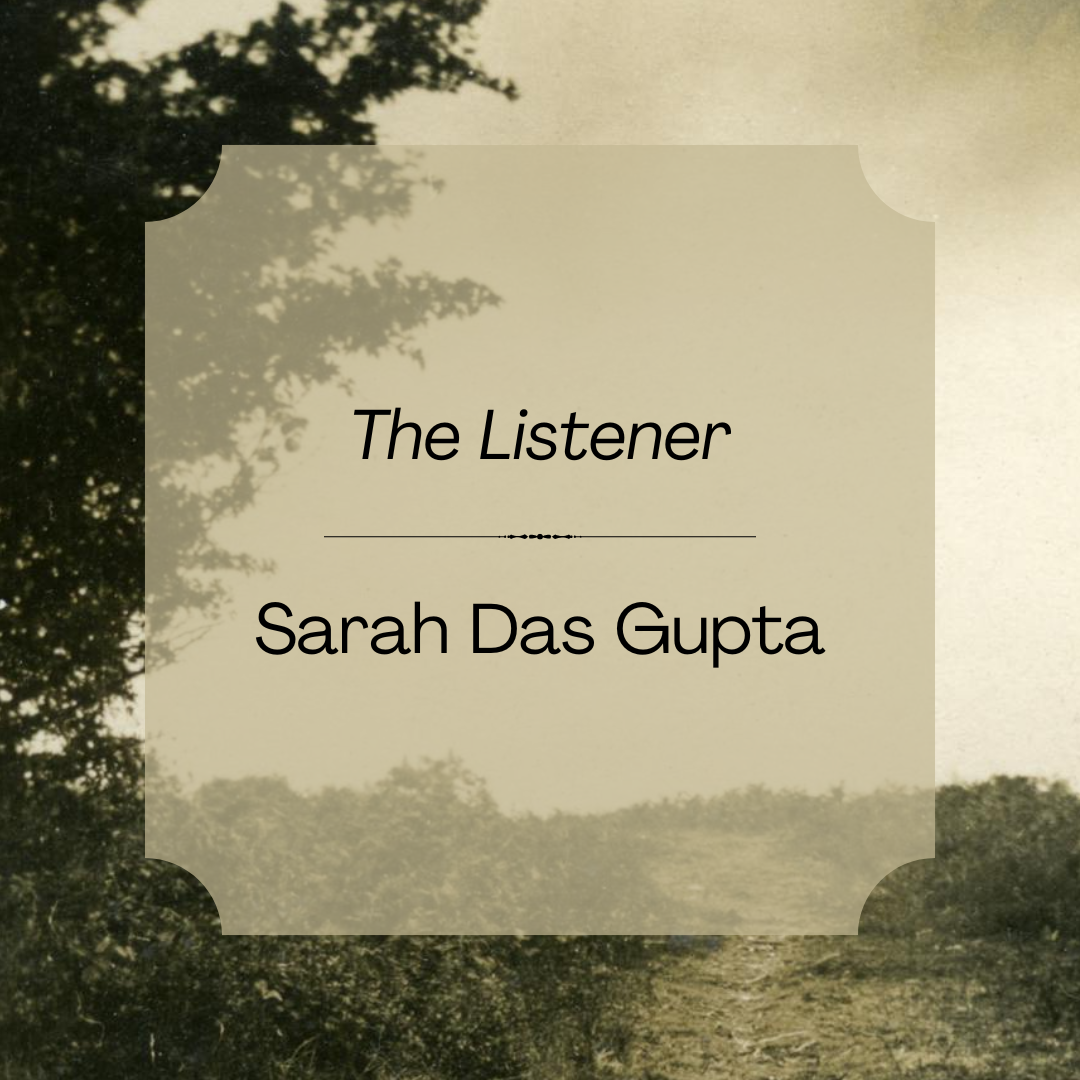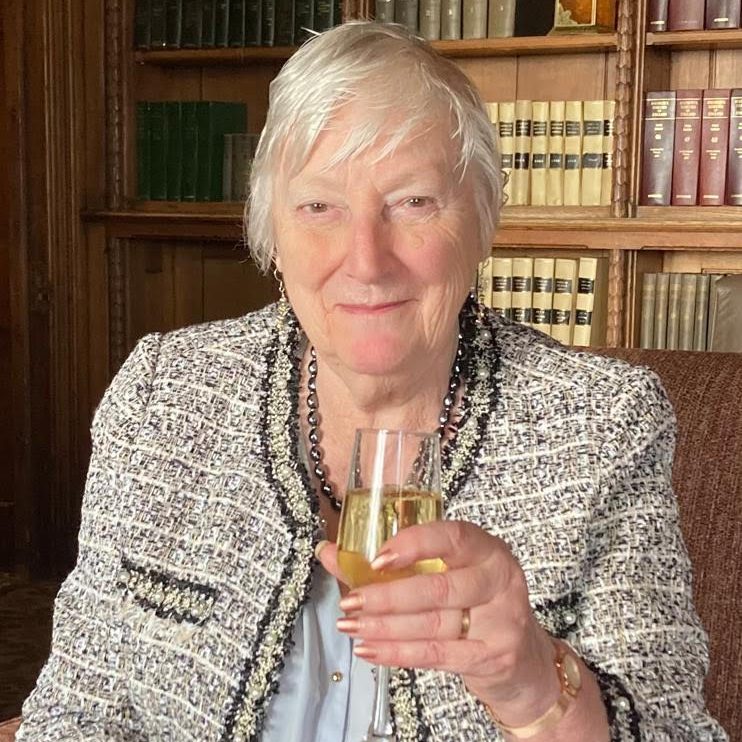“Were you ever married?”
“Yes, I was married once,” Bridget’s grey eyes looked out of the nursing home windows at two pigeons quarrelling over a piece of bread.
“Was that when you were in Chicago?”
“That’s for you to find out.”
Sometimes following Bridget was confusing, like tracing the silvery trail of a snail on a frosty morning. I usually got there in the end. After two months in the nursing home, I had come to know Bridget well.
A mischievous look had come into her eyes and the charm of a Northern Irish accent into her voice, only apparent when she talked of the distant past.
“Well, you must have been young then.” I looked at her in the regulation armchair, in her green T-shirt and lacey knickers.
“Oh, my daddy bought me a pink, frilly dress and we went sailing.”
“In Chicago?”
“No, don’t be silly, in Killarney. The lakes are there, in County Kerry.”
I remembered the summer of ’62. The oars dipping into the water. The view into the green, languid depths and the long coils of weed, like the hair of drowned girls.
At this point, Phyllis had slipped into the room. She stood quietly, twisting the lace curtains with her long, delicate fingers.
“Would you like a drink?” I nodded in the direction of a flask of water. Phyllis poured half a glass, took a couple of sips before carefully sprinkling the rest over my pink bedcover. It blushed bright crimson–whether in guilt or celebration, it was hard to tell.
“It’s raining in Scotland,” Phyllis announced, looking out at the afternoon sun on a patch of withered sunflowers.
“I had my white wedding dress in Scotland and my sister had one too. We were about seven or eight I think.” Bridget’s voice held a child-like excitement.
“Yes, I think that must have been your first communion.”
I thought of the long line of little girls in white dresses lined up under the shadows beneath the old yews. They, too, seemed ghosts from a different world.
“I think your daughter’s coming tomorrow, Bridget. One of the nurses mentioned it,” I observed
“No, I’ve got my interview tomorrow. My Mamie’s bought me a new hat with a pheasant feather.” She looked in the mirror, patting her straggly grey hair. Perhaps she saw the same image as I did.
A seventeen-year-old, long limbed and awkward in her first black suit, hair swept up neatly under the statutory hat.
“Did you get the job then?”
“Don’t be silly. We were Catholics.”
Phyllis had wandered into the bathroom and was now carefully laying soap, tooth paste, perfume, and makeup on the window sill.
“Would you like a chocolate biscuit?” I looked at Phyllis, about to open the toothpaste.
“She hasn’t got a ration book. Anyhow, you can’t get chocolate on the rations. The Murphy girl, up at Bantry Farm, she’s got a GI boyfriend and she’s got chocolate.”
“Yes, but that was a long while ago in the War, Bridget.”
“My brother Patrick, he was shot by a British soldier in Derry. It drove my Mamie a little bit mad. We didn’t mention him.” Bridget looked blankly at her bare feet.
Was she picturing that grainy newsreel of the dying boy and the terrified priest in front waving a handkerchief?
“That was ‘the troubles,’ Bridget, not the War.” I held her hand, cold, unresponsive.
“The war was the trouble. And trouble is a war. It’s all the same.”
I thought of my Uncle Tommy, drowned at sea as the Queen Mary cut his cruiser in half. I once saw a picture of him in his lieutenant’s uniform. What did he look like at the bottom of the sea? He haunted my childhood dreams. Nobody ever talked about him either.
“Phyllis doesn’t like rhubarb, nor do I.”
“Don’t you? I’ve always liked it. ‘Specially with custard. I suppose I got used to it when I was very small. You know, I used to pick it with my father. He had one big clump in the back garden.”
“They try to poison you here. I put it under the bed. You should watch out. Phyllis wants your phone.”
“Bridget, I wouldn’t worry about poison. The food’s just rather boring but not dangerous.”
Phyllis had picked up my phone and was flicking through the photographs. “It looks wet in most of these,” she commented as she went back into the past.
It was odd, watching my life back to front and upside down. She would soon reach the old, sepia photos.
Those fortnights in Mrs. Allsop’s Bogner B and B. No sand in the bedrooms, no towels on the beach, no return till after five. Post-war swimming costumes cut out from old jumpers, soggy and cold in the wind off the grey sea. Weren’t George V’s last words, “Bugger Bogner.” An appropriate use of the King’s English, I’d always thought.
Just as Phyllis was playing “Who Let the Dogs Out?” at full blast, one of the carers came to take them to dinner. A young Filipino, very patient and kind, led them off. As they went out, I heard Bridget tell Marco, “Her daughter’s coming from Chicago tomorrow!”
I sat back in my chair. The room suddenly seemed empty without Bridget.
*
Wednesday afternoon was “exercise afternoon”, though the experience never justified this description. Most of the residents were arranged in a large circle, some in wheelchairs, others in the velveteen armchairs ranged against the walls, like a waiting room, which it was. Everyone was whiling away time, waiting for the same destination.
Each Wednesday, a depressed looking middle-aged man called Barry arrived, dressed in enough Lycra to cycle to Brighton and back. His bag was stuffed full with sporting equipment, most of which remained stuffed away during the “exercise” session. He began in jocular style with, “Afternoon, Ladies and Gentlemen. Ah! Some real beauties here this afternoon. No Sir, not you in the tartan pants. The lovely lady on your right in the gorgeous green dress.”
Thankfully, this patter never lasted more than ten minutes. By the end of the hour, which included a long refreshment/comfort break, Barry restricted himself to exasperated directions and muttered expletives–“Just throw the f…ing balls back” or “Don’t sit on the bloody balloons.”
By this point, most participants were asleep, heads dropping forward or hanging back, mouths wide open, while balloons floated around and balls bounced joyfully.
I never knew what Bridget was really thinking on those tragi-comic Wednesday afternoons. She would throw balls back to Barry with angry ferocity, bat balloons at those snoring in their wheelchairs, grab as many paper cups of orange juice as possible, then say, with tears in her eyes, “We’re going on a picnic in Longdale woods tomorrow. I’ll bring bluebells for you. Mamie will give hers to Patrick, so she will.”
*
I was sitting reading a magazine and feeling bored when one of the nurses knocked at the door. Bridget had been in bed with bronchitis for a few days.
“Would you like to sit with Bridget for a little while this afternoon? She’s very poorly but not in pain. She probably won’t talk, but she’ll know you’re there.”
“Of course. I can’t imagine a silent Bridget!”
Later that afternoon, I opened Bridget’s door quietly. The September sun, low in the sky, shone across the candlewick bed cover. The first thing that struck me was the tidiness of the room, so unlike its usual state of chaos and confusion. Her room always reminded me of the end of a holiday when you throw everything at the suitcase and sit on it, in the vain hope of forcing the zip. The silence and sense of order were so alien to Bridget. It was as if something of her had already gone.
I tiptoed across the room as the atmosphere seemed to demand. Her face had aged in the few days since I had seen her. She was dozing, rather than sleeping, her head almost sliding off the pillow. As I gently moved her head to a more comfortable position, I heard her mumbling, “Not rhubarb, no rhubarb,” and her eyes opened for a few seconds.
On the dressing table were two faded, sepia photos–one of a dark-haired young man, sitting on a wall gazing out over a calm sea, the other of two pretty girls in their first communion dresses, looking shyly into the camera. As I put the silver-framed pictures down, I heard Bridget restlessly turning and whispering. I held her hand, cold and unresponsive.
“Not bombs, no bombs, Mamie…”
“Have a rest Bridget, it’s safe here.” I took a tissue and wiped the dribble running down from the corner of her mouth and softly combed her long hair back from her face.
“It’s lovely out in the garden today. The light is translucent and the last roses have that deep colour before the frosts.”
“We had our white dresses. White dresses…dresses.”
I took the communion photo and held it up in front of her. She stared at it a moment before her eyes closed. Above the bed was a faded photo of an elderly couple in front of a farmhouse door. The woman looking frail and lost, the man, expressionless, in control in front of his house.
“Looks a beautiful, old farmhouse there, Bridget. They must be your parents. The countryside in Ulster’s very pretty.” I broke off lamely. It was so hard to go solo. I missed Bridget’s provocative interventions. I was waiting for “Don’t be silly” or “It’s not for me to say.” This was a new role; I preferred the old script.
On the dressing table were two cut glass containers. One was half full of face powder, the other empty except for an entombed fly, slowly turning to dust.
Through the window, the rays of the setting sun filled the room with dusky light. The bed, Bridget, my chair were floating in a darkening pool. Only the grey outlines of the garden hedges anchored the view.
“In the interview, white, just white…” For a moment, clear as a bell. Then silence.
A low rattling filled the room, like an east wind, blowing old trash cans in a bare alley.
I held Bridget’s hand, hanging limply down the side of the bed. Was I hoping for a response or rehearsing my own future?
There was the softest of squeezes in the shadowy room.



